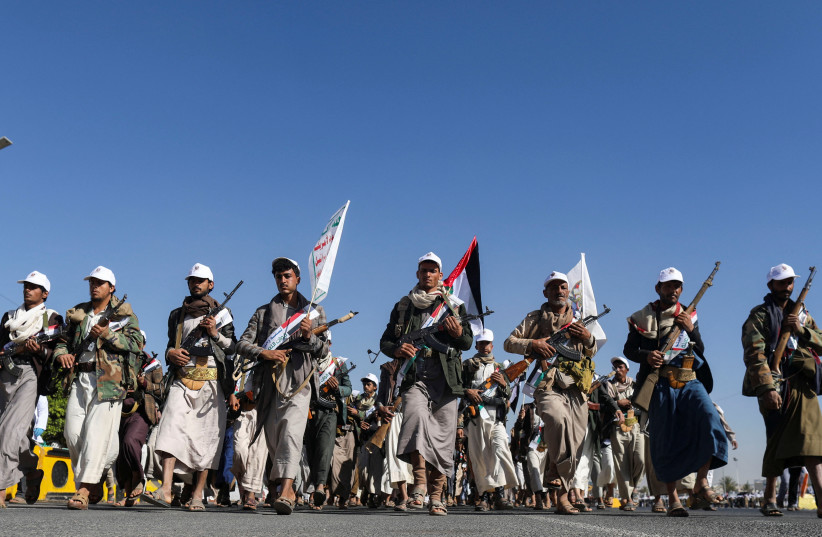With the challenge of Houthi terrorism, vessels transiting the Bab al-Mandab Strait have been subject to an increase in attacks at sea not seen since the rise of the Somali pirates. However, best practices developed to combat piracy can also be used to counter maritime terrorism.
Many shipping companies have opted to circumvent Africa and avoid the Red Sea and Gulf of Aden together, but for those who must transit the high-traffic zone, there are other means to avoid attack. Reducing light emission at night is an easy way to reduce decrease detection. This would require ships to ensure that the windows in all cabins are covered at dusk and that the bridge is darkened.
Before departure from port, vessels can set up hurdles to deter boarding from Houthi ships if they are detected. Barbed or razor wire is a common defensive measure that can be strung along a ship’s perimeter to prevent boarders from climbing up from small craft.
These wires may also be electrified to further increase the stopping power of the defensive hurdles. During the heyday of Somali piracy, some vessels also used to activate water cannons when entering a high-risk area, whose water pressure would blast would-be intruders back down to the sea.

Somali piracy offers a precedent
A major factor in the decrease in Somali piracy, besides multinational naval patrols, was the hiring of armed security personnel to fend off attackers. Backed by Iran, the Houthi appear to be better armed than the Somali pirates, but a sufficient force of maritime security contractors could offer increased protection for crewmen.
No doubt it would be expensive to hire contractors for this dangerous role, but likely less so than the fuel and time costs of transiting around Africa. For vessels that decline hiring security personnel, a cheaper alternative is setting up dummies to appear as armed guards.
If these measures fail to deter maritime terrorists, ships should have safe rooms that the crew can retreat to until help arrives. During the era of Somali pirates, vessels set up citadels, sometimes in engine rooms, where they could safely lock themselves away.
Many of these best practices against Somali pirates are relevant, because Houthi terrorists also use fast craft to intercept civilian cargo ships. However, the Houthi have also presented new challenges to shipping, sometimes boarding from helicopters.
They also do not necessarily seek to hijack, and may instead opt to sink or damage vessels or kill some of the crew. RPG-7s common to both the Houthi and the Somali pirates may not be able to sink a ship, but the Houthi are also armed with Iranian-supplied anti-ship missiles. The maritime community will still need to consider other methods to abate such threats.
